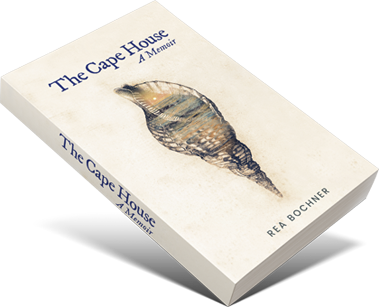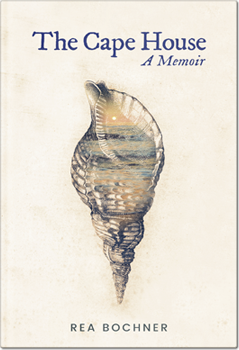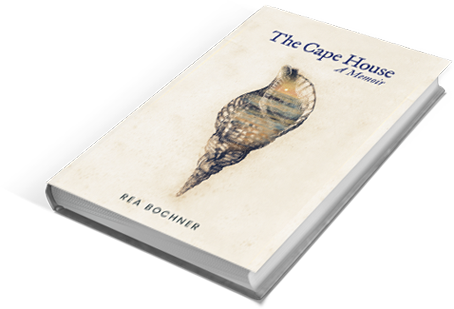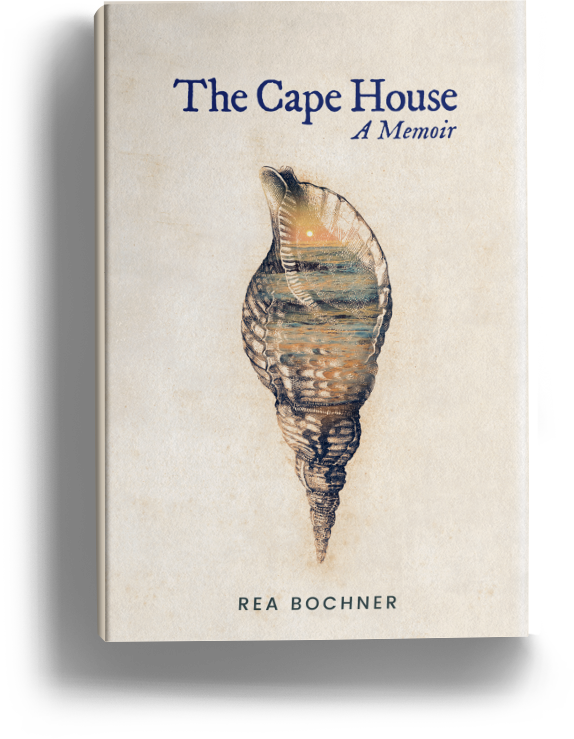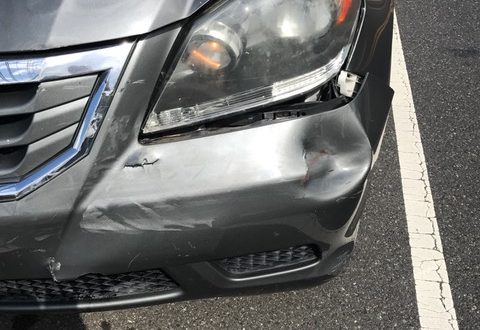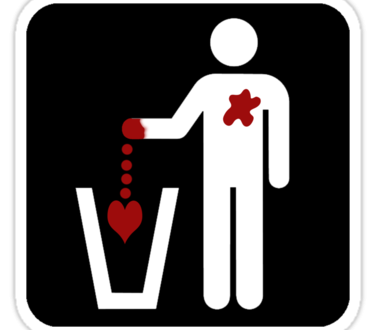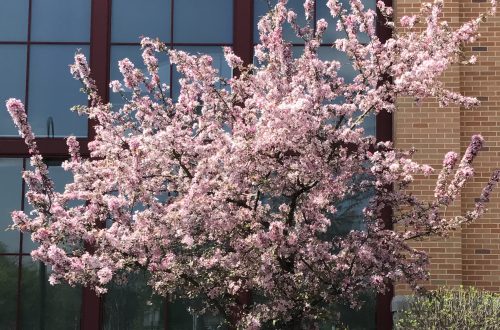Her real name is Lynn, but I’ve always known her as Peach. She got the nickname in college, when she was my mother’s roommate and was dating a guy whose last name was Cream (as in, “Peaches and…”). Peach knew my parents when they were still googly-eyed teenaged lovebirds who, she says, “made out all over the place.” Ew.
By the time I met Peach, she was already an RN with a blonde French bob and two sons. The older one, Greg, was around my age, and I had a crush on him when the family came to visit us at the Cape (he preferred playing sports with my brothers). Peach’s younger son, Ross, looked like Ron Howard circa the Andy Griffith show, fire-red hair and all. Ross had severe Autism, and from the moment he was born, Peach and her husband, Lee, dedicated themselves to helping him reach every developmental milestone. Peach built an obstacle course on the floor of their living room and slithered for hours on her belly to get Ross crawling. She worked with speech and occupational therapists to help Ross speak, to eat independently, to dress himself. Eventually, when he was going to school, Peach and Lee took Ross on all kinds of adventures and signed him up for a million extracurricular activities and volunteer projects – engaging him with the world as much as they could. At one point, Ross washed, packed, and shipped 6,000 Beanie Babies to Afghanistan for soldiers to give to children. It was his contribution to the peace effort.
Ross was the first person I knew with Autism. I wondered what the world looked like through his eyes, what it felt like to be in his body. I liked to watch Peach with him. She spoke to him plainly, like she would to anyone else, and expected him to be his best self; Ross was never allowed to rest on his laurels. I never felt embarrassed to ask her questions because she loved to talk about Ross and the work they did. In fact, she took her expertise and became a consultant and advocate for parents of children on the Autism Spectrum.
I couldn’t have known during those summer visits that I would one day teach children with Autism. It was actually an accident. I fell into a degree program in education and needed a day job, and the local board of education was hiring. I got a gig as an aide in a “self-contained classroom” with only three students, all of whom had Autism. I was terrified. We had Stephanie, a little girl as gorgeous as a ballerina who didn’t speak and was prone to biting. Andrew was a sweet little nugget who tried to escape work by napping. Dominick, my buddy, was the highest-functioning of the group. He liked to read and could carry on conversations with me – when he wasn’t reciting entire episodes of Spongebob to himself, verbatim. I had zero experience or skills, but I did have my instincts, which told me to just keep talking to them. And I had Peach, who had showed me, with Ross, that I could expect much of them. She also sent me pages and pages of links about every possible topic related to Autism.
In the summer, my sister, who was in school for physical therapy, and I spent a few days with Peach, Ross, and Lee in Connecticut. Ross was twelve, a gangly prepubescent who was attending Camp Care, a program where disabled children were engaged in activities and treated with craniosacral therapy. For me, it was an opportunity to pick Peach’s brain and learn more about working with autistic children. For my sister, it was a chance to learn more about the therapy they were doing. The two of us sat in on one of the sessions, where a teenaged boy who had been severely injured in a car accident was receiving therapy. His body was mangled and he had suffered serious brain damage. I couldn’t explain how craniosacral therapy works; all I saw was a serene practitioner holding his hands on the boy’s feet, eyes closed. But something moved in that kid. I can’t tell you what, exactly, because his body remained perfectly still. But the energy around him, within him, shifted. You could feel it. Something inside him had made room, letting in a little more healing, a little more peace. Aside from childbirth, it was the coolest thing I have ever seen.
I understood why someone like Ross might benefit from a program like Camp Care. Aside from the social engagement and skill building, Peach explained to me that people with Autism have systems in a perpetual state of shock. Unlike typical people who can regulate their senses, the world comes at the Autistic with no filter. Lights glare, sounds boom, sensation on the skin agitates to the point of pain. Their vestibular systems, which help them find their balance and location in the world, is askew; it’s why my friend Andrew could spin in a swing for fifteen minutes straight without getting nauseous. When your body feels like it’s under constant assault, it disrupts the entire system. Self-soothing behaviors are the only relief – that is, until they are given what is called a “sensory diet,” which gives the body the input it needs to regulate itself, to move from a place of distress to a place of okay.
Lynn gave me all this information while juicing an enormous amount of carrots for Ross, whom she had on an almost completely raw diet. While she spoke, I ate carob chips in bulk, trying to quell my own distress. In fact, the more she spoke, the more I was reminded of myself. I, too, had my own self-soothing behaviors, many of which were self-destructive, to get me back to a place of okay. Come to think of it, wasn’t everyone like that? Autistic people were just more obvious about it.
Over those few days, I watched Ross interact with family, friends, and the therapists who came by the house. You knew whom he preferred and whom he didn’t. He hugged his parents with bent elbows, forearms up and hands tucked inward. He also argued with them, his words slurred yet passionate, when he didn’t want to do something – pretty typical for a twelve-year-old. He was enthusiastic, friendly, and liked his routines. He adored being outside. He loved the world and being in nature.
When my sister and I left, Ross hugged us goodbye. His arms felt like warm twigs.
Peach and I have been in touch in the fifteen years since then. She came to the Cape House when my mother was dying, and as always, she talked the facts with us in her unflinching yet gentle way. We exchange emails sometimes, and she was the first person I called when one of my children received a diagnosis. Naturally, Peach supplied me with pages and pages of information, recommendations, advice, and encouragement. Always, she had some great story about Ross, his long-distance running, his travels around the world with his family. He was living as big a life as possible.
The other day, I got an email from Peach with the subject, Ross. I wondered what the latest update was. Maybe he was going to Hawaii to run a 10k for charity?
Dear Rea, it said.
It is with a broken heart I write to tell you that our beautiful Ross drowned on Saturday, September 29 at his very favorite Ballston Beach in Truro on Cape Cod.
Wait, what?
I read it again.
…our beautiful Ross drowned…
I gasped aloud.
Ross and I were hiking, the same walk we estimate we’ve walked 1-2 times a day for the past 10 years. The waves were huge and Ross was loving it! I believe his Red Sox cap blew off and as he bent to pick it up, a huge wave came up higher than expected, knocking him off his feet, pulling him into the strong surf. He was not able to get out of the water. I went in after him. The waves felt like being in a washing machine. At some point I injured my left leg, couldn’t stand up or walk and was unable to reach him.
Because the beach was empty, it took awhile before some wonderful strangers came along, called 911, helped me to a safer place and went to notify Lee. I was carried off the beach by paramedics. They found Ross’ body the next day. He has been cremated and we plan to spread his ashes near places significant to him next summer.
I read it twice, trying to find the line that said, “…And, thank God, he’s okay now.” But it wasn’t there.
In shock, I walked out of my office and called my sister.
“Ross drowned?” she said, like there was nothing more impossible.
“I know,” I said. I still couldn’t believe it myself.
On the way home, I imagined that perfect beach day in Touro. Ross’s lanky body delighting in the water, seagulls crisscrossing the sky. And then…
I began to sob.
How could something so horrific be possible? I imagined Ross’s helplessness, Peach’s terror, the agony of not being able to help her son.
What in the hell was God thinking?
My anger and helplessness came out in a prayer. “I have to believe You know what You’re doing, because I don’t get this…”
I wept the rest of the way home.
It’s been a few days since I got Peach’s email. In my predictable human way, I’ve been trying to make sense of what happened to Ross. It hasn’t worked. I keep thinking of a conversation I had with my five-year-old, who complained how unfair it was that his brothers got a big treat when he only got a little one.
“No one ever said that life was fair,” I said.
At the time, that didn’t bother me so much.
I’ve also been thinking about something Anne Lamott wrote: “Hope is…about choosing to believe this one thing, that love is bigger than any grim, bleak shit anyone can throw at us.”
Let me tell you something: Ross’s death is some grim, bleak shit. So bleak, in fact, that it makes me want to drift to the bottom of the tank, where the dirt and waste and dark things are. But I just can’t do it. Hope is tattooed onto my soul. It makes me float like a bubble to the surface, every single time. It keeps me believing in the goodness of life, despite all the evidence.
I’m fully aware that I’m an idiot. I can’t help this.
Anne is right about love. Peach even told me so at the end of her email: Please make sure to hug everyone you love often.
I will never understand what God was thinking when He took Ross the way He did. But if I can take anything from his death, it’s that love is everything. It’s the entire point. Love is what gave Peach the strength to help Ross become who he was. It was what gave him the strength to be the best possible person of himself, to live the biggest life he could. Love brought Peach and Ross into our lives, and they taught me more than I ever taught any of my students. Love enabled that healer at Camp Care to change something fundamental in the injured young man, and it’s what helps me find my own place of okay, over and over again. Love saves us, it heals us, it nudges us back toward life, even when the ones we love lose theirs.
I am certain that on the day he died, Ross knew how loved he was. For him, it must have been a perfect day, walking the beach with his mother, blue sky and white clouds, waves crashing, plovers pecking at the sand, sun on his skin and sand under his feet. I like to think that his last moments on this Earth were happy ones, that he was in his place of okay, and that for a small eternity, he felt the world loving him back.
